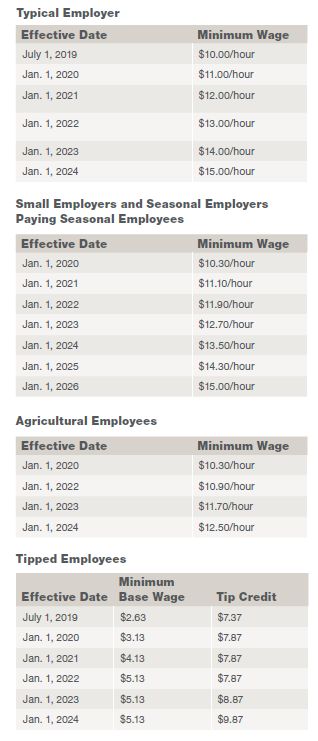- within Employment and HR topic(s)
- in United States
- within Compliance topic(s)
Effective Jan. 1, 2019, employers in New Jersey increased their employees' minimum wage to $8.85, but employers are now being forced into providing an even bigger raise – up to $15 per hour. For many employers, $15 an hour for minimum wage is daunting, but there is some good news – this increase will be gradual, just like New York's was, and will incrementally increase most employees' wages to $15 per hour by 2024.
Who is excluded?
Employers are permitted to pay employees in training 90 percent of the minimum wage for up to 120 hours of work in an occupation where the employee had no previous experience, provided the employees are enrolled in a "training program." It is not yet clear what will constitute a training program, but what is clear is that employers will not be permitted to continue to hire employees at the training wage, terminate them and then hire someone else. The law strictly forbids such action.
Small employers (those with five or fewer employees) and seasonal employers (as defined in the act) will have until 2026 to work up to $15 per hour.
Tipped employees may still be paid less than minimum wage when the tip credit is properly applied; however, the minimum base wage they need to be paid is also increasing, to $5.13 per hour by 2022.
Agricultural employees' wages are the only wages that may not see an increase to $15. Their minimum wage will be raised to $12.50 an hour by 2024, with an option for the labor and agriculture regulators to determine whether agricultural employees' wages should be raised to $15 per hour by 2027, which would be subject to the state legislature's approval.
Here are tables illustrating what to expect in the coming years.

The content of this article is intended to provide a general guide to the subject matter. Specialist advice should be sought about your specific circumstances.







